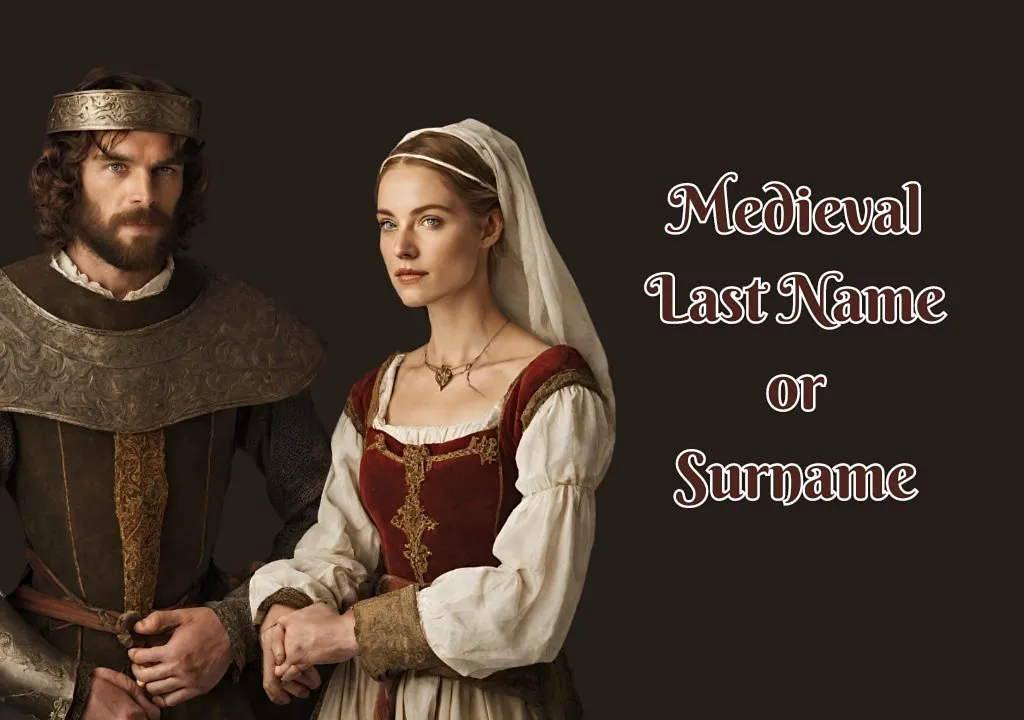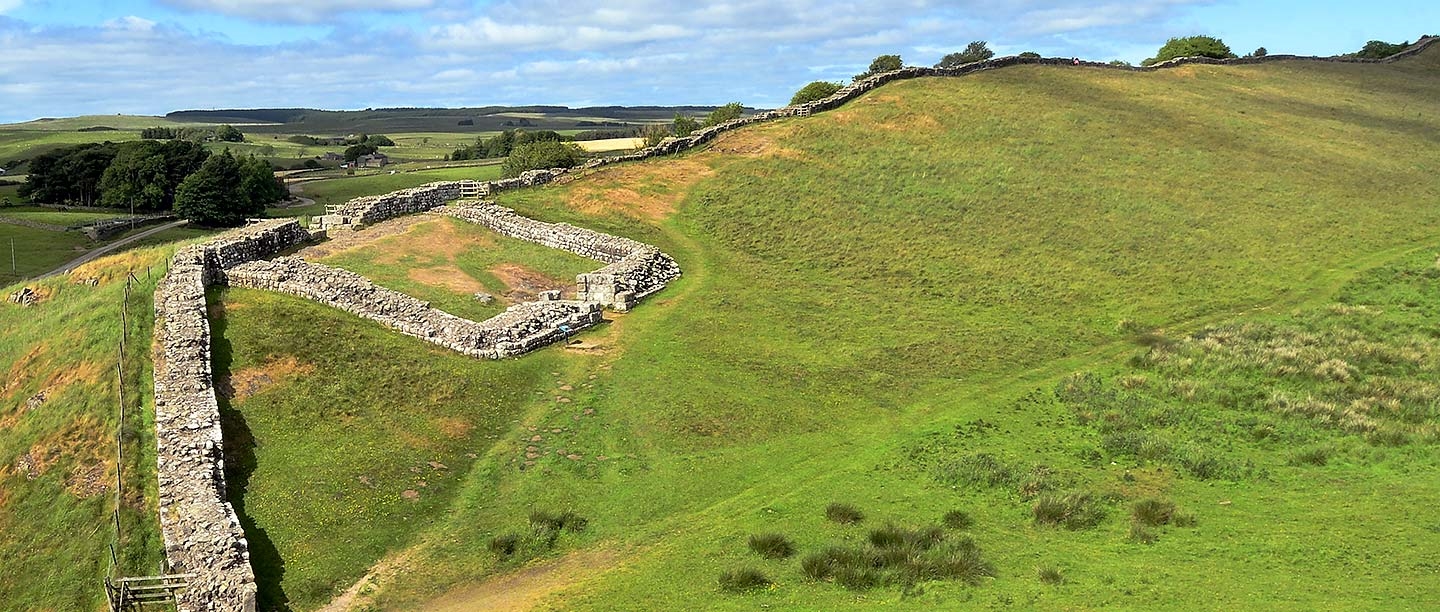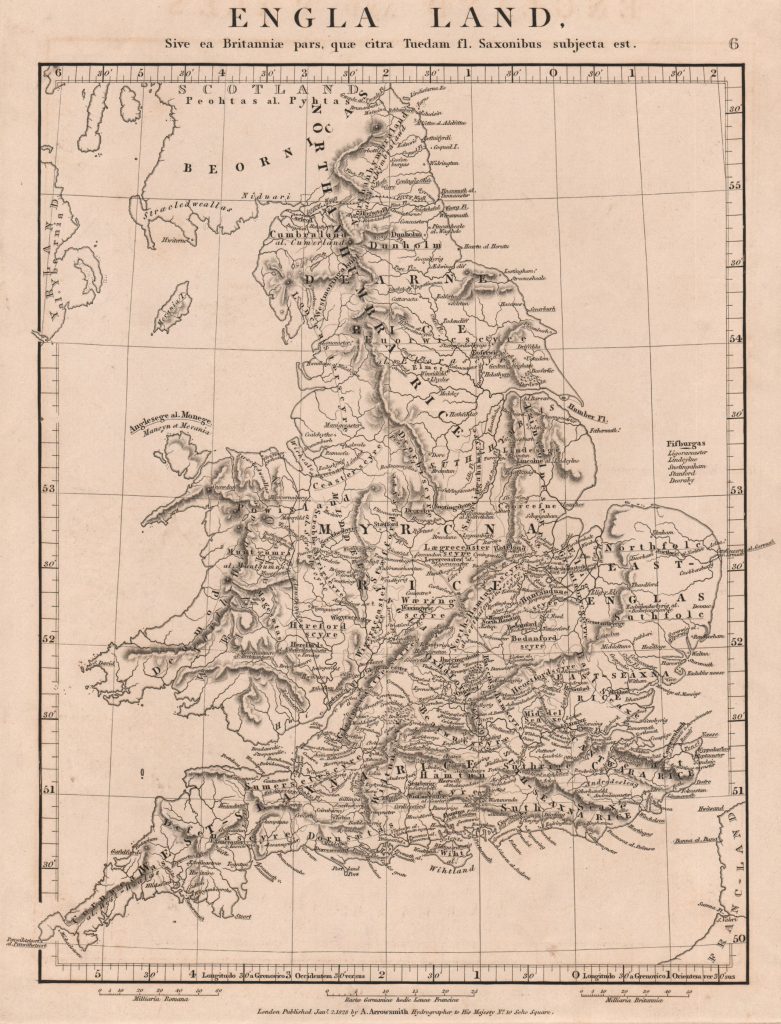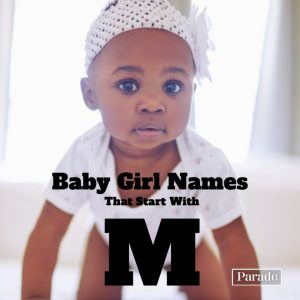British last names often reflect medieval trades or personal characteristics like Armstrong, Swift, or Red. Some common examples are Smith, Wright, Fletcher, and Cook, originating from ancestral vocations.
Additionally, surnames such as Knight, Squire, Taylor, and Turner are linked to historical occupations. In the UK, last names like Brown, Evans, Jones, Taylor, Walker, Baker, Davies, Robinson, and Smith are prevalent. Furthermore, unique and rare British surnames like Kitchingside, Upward, Bedward, and Binding exist in familial lineages.
Understanding the historical significance and origins of British last names adds depth to genealogical research and cultural heritage exploration.

Credit: parenting.firstcry.com
Table of Contents
ToggleThe Significance Of British Last Names
British last names, also known as surnames, hold a deep historical significance and reflect the rich cultural heritage of the British Isles. Understanding the origins and common themes of these surnames provides valuable insights into the social, economic, and occupational backgrounds of the families bearing them. Exploring the significance of British last names sheds light on the fascinating tapestry of the country’s ancestral lineage and contributes to a greater understanding of British history and identity.
Understanding The Origins Of British Surnames
The origins of British surnames can be traced back to various sources, including occupations, locations, personal characteristics, and relationships. As early society evolved, the need for unique identifiers led to the adoption of hereditary surnames. Occupational names, such as Smith, Baker, and Turner, emerged from medieval trades and professions, while locational surnames indicated a person’s place of origin, such as York or London. Additionally, patronymic surnames, like Johnson and Williamson, denoted lineage or family connections, further diversifying the spectrum of British last names.
Exploring The Common Themes In British Last Names
British surnames often exhibit common themes that reflect the historical and cultural context from which they originated. Many last names are associated with occupations and trades, showcasing the ancestral lineage of skilled craftsmen, merchants, and laborers. Moreover, surnames derived from geographical locations highlight the geographical diversity and migration patterns of ancient British communities. Personal attributes and familial ties also play a significant role, as last names based on physical characteristics or ancestral relationships underscore the individuality and interconnectedness within British society.

Credit: www.english-heritage.org.uk
Historical Context Of British Last Names
The historical context of British last names provides a fascinating insight into the evolution and significance of surnames in the United Kingdom. From medieval trades and professions to personal traits and characteristics, British last names carry a rich legacy that reflects the country’s diverse history and cultural heritage.
Tracing The Evolution Of English Surnames
English surnames have evolved over centuries, influenced by various factors such as occupation, location, and family lineage. The practice of using surnames became widespread during the Middle Ages, as a means of distinguishing individuals and families.
Surnames Derived From Professions And Traits
Many British last names are derived from professions and traits that were common among people in the past. Smith, Miller, Cooper are examples of surnames that originated from traditional occupations, while Black, Strong, Wise represent personal attributes that were often used to identify individuals.
Common And Rare British Last Names
Explore a diverse array of British last names, from the common like Smith, Evans, and Walker, to the rarer ones such as Knight, Squire, and Swift, each bearing distinctive historical significance and reflective of trade, traits, or looks originating in medieval times.
Uncovering The Most Common British Surnames
When it comes to British last names, there are some that are undeniably common and can be found in abundance. These names have deep roots in British history and can often be traced back to medieval times. Here are some of the most common British surnames:
- Smith: The name Smith is derived from the Old English word “smythe,” which means a metalworker. This surname was often given to those who worked with metal, particularly blacksmiths.
- Jones: Jones is a popular Welsh surname that originated from the Hebrew name “Yochanan,” meaning “God is gracious.” It is one of the most common surnames in Wales.
- Taylor: Taylor is an occupational surname that refers to a tailor, someone who makes or repairs clothing. It is derived from the Old French word “tailleur.”
- Evans: Evans is a Welsh surname that means “son of Evan.” It is a patronymic surname, which means it is derived from the given name of an ancestor.
- Walker: Walker is an English occupational surname that refers to someone who worked with textiles, often a fuller or a cloth-walker.
- Baker: Baker is a common English surname that originally referred to someone who baked bread. It comes from the Middle English word “bakere.”
- Davies: Davies is a Welsh patronymic surname that means “son of David.” It is a variation of the surname Davis.
- Robinson: Robinson is an English patronymic surname that means “son of Robin.” It is derived from the given name Robin, which is a diminutive of Robert.
- Smith: Smith is an occupational surname that refers to a metalworker, particularly a blacksmith.
Exploring Uncommon And Unique British Last Names
While there are many common British surnames, there are also plenty of uncommon and unique last names that are less prevalent but equally intriguing. These lesser-known surnames often have interesting origins and add a touch of uniqueness to their bearers. Here are some examples:
| Surname | Meaning/Origin |
|---|---|
| Ashford | Ashford is a locational surname that refers to someone who came from a place named Ashford, which means “ford where ash trees grow.” |
| Hawthorne | Hawthorne is a surname that originated from the Middle English word “hagetheorn,” meaning “hawthorn tree.” |
| Chamberlain | Chamberlain is an occupational surname that originally referred to someone who was in charge of the chambers or private apartments of a noble household. |
| Merryweather | Merryweather is an English surname that means “merry weather” or “pleasant climate.” |
| Witherspoon | Witherspoon is a Scottish surname that is derived from a place name. It means “wooded hill.” |
These are just a few examples of the many unique British surnames that exist. Exploring and discovering uncommon last names can be a fascinating journey, as each name carries its own story and history. Whether you have a common or rare British last name, it is a part of your identity and heritage.

Credit: www.english-heritage.org.uk
British Last Names In Contemporary Society
British last names hold significant historical and cultural value in contemporary society, with surnames like Smith, Evans, and Taylor being commonly found. These names often carry a rich heritage, reflecting medieval trades, personal traits, or physical appearances, making them an integral part of British identity.
British last names play a significant role in shaping individual and collective identities in contemporary society. They provide a link to ancestral heritage and hold a rich historical and cultural significance to many individuals. Understanding the impact of British last names on identity and their presence in popular culture can offer insights into the diverse tapestry of British society today.
Impact Of British Last Names On Identity
British last names have a profound impact on personal identity, serving as a gateway to one’s familial and cultural roots. These names can provide a sense of belonging and connection to a specific community or region. They represent a family’s history, heritage, and traditions, which can shape a person’s values, beliefs, and identity.
Furthermore, British last names can connect individuals to a larger historical context, enabling them to trace their lineage back through generations. This sense of continuity and ancestral connection can instill a sense of pride and identity, allowing individuals to appreciate their place within a broader historical narrative.
In addition, British last names can also influence how individuals are perceived by others. Whether consciously or not, people may make assumptions about someone’s background, social class, or cultural affiliations based on their last name. This can affect interactions, relationships, and opportunities in various contexts, ranging from professional settings to social circles.
British Last Names In Popular Culture
British last names have made their mark in popular culture, serving as inspiration and contributing to the rich tapestry of literature, film, and entertainment.
- Many renowned literary works feature characters with distinct British last names, such as Mr. Darcy from Jane Austen’s “Pride and Prejudice” or Sherlock Holmes created by Sir Arthur Conan Doyle.
- British last names have also become part of the lexicon in the world of music and art, with bands like The Smiths and artists like Damien Hirst drawing attention to British identity.
- In film and television, British last names can contribute to the authenticity of settings and characters. For example, the James Bond franchise has showcased iconic British names like Bond himself, Moneypenny, and Q.
These examples highlight the integral role that British last names play in shaping popular culture and how they can be both recognizable and influential in various creative mediums.
Exploring The Meanings And Stories Behind British Surnames
Discover the fascinating histories and significance behind the diverse British last names. Whether stemming from medieval trades or personal traits, names like Smith, Evans, Taylor, and Walker offer intriguing glimpses into England’s heritage. Uncover the unique stories and meanings encapsulated within these traditional surnames.
Significance Of Geographical And Occupational Surnames
British last names have a rich history and often provide insights into a person’s geographic or occupational heritage. Geographical surnames, such as Hill or Wood, were commonly given to individuals who lived near or had associations with specific landforms or natural features. These names not only served as a way to identify one’s locality but also provided a sense of connection to the land.
On the other hand, occupational surnames were derived from the jobs or trades that individuals performed. These names, like Smith or Taylor, revealed the ancestral professions of families and highlighted the importance of specific trades in British society. Occupational surnames are a testament to the skills and expertise that were passed down through generations, forming the backbone of British industry.
Understanding The Symbolism In British Last Names
British last names also hold significant symbolism that can shed light on a person’s qualities or characteristics. Some surnames, such as Strong or Swift, reflect physical attributes or abilities. These names were given to individuals who possessed remarkable strength or agility, distinguishing them from others in their community.
Furthermore, certain surnames carry deeper meanings that go beyond physical traits. For example, names like Noble or Wise embody virtues and qualities that were highly admired in British culture. These surnames not only conveyed a sense of honor and wisdom but also served as a reminder of the noble aspirations and moral values upheld by families throughout history.
In conclusion, British surnames hold fascinating stories and meanings that provide a glimpse into the heritage and values of individuals and families. Whether rooted in geography, occupation, physical attributes, or moral virtues, these last names are a testament to the diverse and vibrant history of the British Isles.
Influence Of British Last Names On Baby Naming Trends
British last names have a significant influence on the naming trends of babies. They carry a sense of history, tradition, and heritage, making them an attractive choice for new parents. The unique and diverse range of British last names provides ample inspiration for modern baby naming, whether parents are seeking a popular English surname or a trendy and uncommon option. Let’s explore the impact of British last names on baby naming trends.
Popular English Surnames For Babies
When it comes to choosing a popular English last name for your baby, options like Smith, Jones, Evans, Taylor, and Walker are timeless classics. These surnames hold a strong cultural significance and are widely embraced by parents seeking a traditional yet elegant name for their little one.
Trendy And Uncommon British Last Names For Babies
If you’re looking for a more unique and trendy option, consider British last names such as Baker, Davies, Robinson, Wright, and Fletcher. These names add a touch of exclusivity and sophistication to your baby’s identity, setting them apart from the crowd with their uncommon charm.
The Americanization Of British Last Names
British last names have undergone a process of Americanization, resulting in surnames like Brown, Evans, Jones, Taylor, Walker, Baker, Davies, Robinson, and Smith. These names often originated from medieval trades, occupations, or personal traits.
The Americanization of British Last Names
British last names have a rich history and have greatly influenced the cultural fabric of America. The Americanization of British Last Names, particularly in the context of adaptation and transformation in America, sheds light on the fascinating ways in which these surnames have evolved across generations and geographical boundaries. This transformation has played a significant role in shaping the identity and heritage of many prominent American figures with British surname origins.
Adaptation And Transformation Of English Surnames In America
The adaptation and transformation of English surnames in America reflect the diverse and dynamic nature of American society. Over time, British last names have undergone changes to align with American phonetics and linguistic influences. This adaptation has resulted in the creation of hybrid surnames, blending the traditions of both British and American cultures.
Common Adaptations in Americanized British Last Names:
- Shortening or truncation of lengthy British surnames for ease of pronunciation
- Phonetic alterations to mirror American speech patterns
- Incorporation of Americanized prefixes and suffixes
This natural evolution of British surnames in the American context symbolizes the assimilation and integration of diverse cultural heritages, contributing to the rich tapestry of American names.
Famous American Figures With British Surname Origins
Many well-known American personalities have British surname origins, serving as a testament to the enduring legacy of British last names in the United States. This link to their ancestral roots has played a pivotal role in shaping the historical narrative and cultural landscape of America.
Notable American Figures with British Surname Origins:
- Thomas Jefferson: The third President of the United States with a surname of English origin, signifying his ancestral ties to Britain.
- Benjamin Franklin: An iconic American statesman and inventor, whose surname reflects his British heritage.
These individuals exemplify the enduring influence of British last names in America, underscoring the enduring connection between the two nations and the lasting impact of these surnames on American history and society.
Preserving And Celebrating British Last Names
Preserving and celebrating British last names unveils a rich tapestry of heritage and history. From Smith to Taylor, these surnames echo medieval trades and personal traits unique to British lineage. Dive into the diverse array of English last names, each telling a story of its own.
The Role Of Organizations In Preserving British Surnames
Organizations play a crucial role in preserving the rich heritage of British last names.
Recognizing The Rich Heritage Of British Last Names
It is important to recognize and celebrate the deep-rooted significance of British last names.
Frequently Asked Questions On British Last Names
What Is An Old British Last Name?
Old British last names include Smith, Wright, Fletcher, Knight, Cook, Squire, Taylor, and Turner, based on medieval trades. Some are derived from traits or looks, like Armstrong, Swift, Red, and Short.
What Is The Rarest Surname Uk?
The rarest surname in the UK is “Kitchingside, Upward, Bedward, and Binding”, as reported by Imogen Patterson.
What Is A Typical Uk Last Name?
A typical UK last name could be Brown, Evans, Jones, Taylor, Walker, Baker, Davies, Robinson, or Smith.
What Are The 100 Most Common Surnames In England?
The 100 most common surnames in England include Brown, Evans, Jones, Taylor, Walker, Baker, Davies, Robinson, and Smith. These surnames have medieval trade or occupation origins and may also derive from personal traits or looks. Sources include Historic UK, EF Education, and Scary Mommy.
Conclusion
British last names are rich in history, from medieval trades to personal traits. Discovering these unique surnames can provide insight into your ancestry and heritage. Embrace the diversity and significance of British last names to connect with your roots. Explore and celebrate this cultural legacy.

Mother of Two children. I’m a former teacher with a background in child development and a passion for Good parenting. I understand child development and know how to develop activities to help children learn and grow. Spare time, I enjoy spending time with my family, reading, and volunteering in my community. Read More







